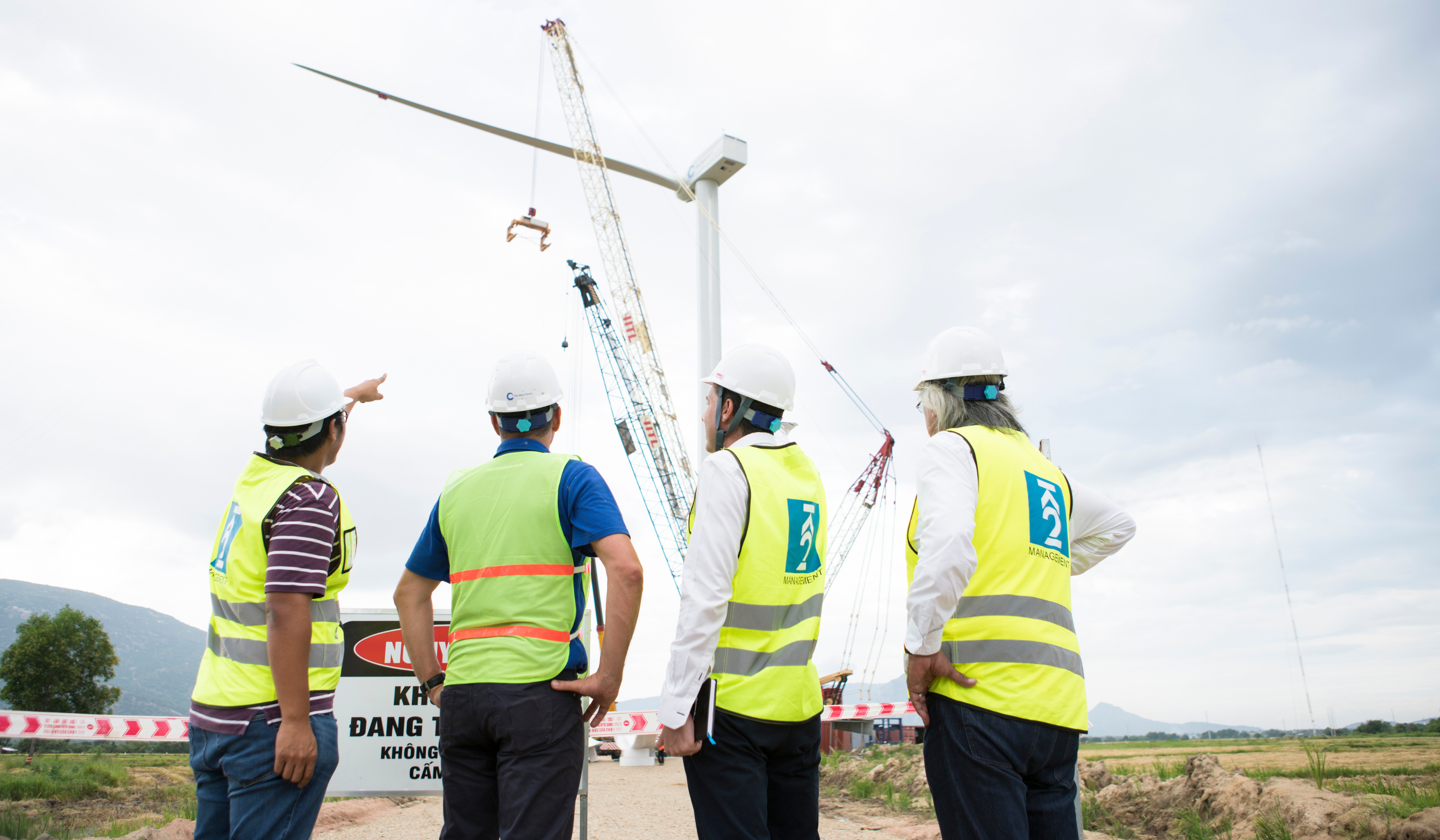
How can the skills shortage in the UK offshore wind industry be tackled?
The offshore wind industry in the UK and around the world is undergoing immense growth. According to a report by Research and Market, the global market is expected to grow 12.3% between 2021 and 2026, with revenue increasing from $31.8 billion to $56.8 billion.
With Ireland, Germany, France, Spain, South Korea, Japan and Australia, to name but a few, setting their sights on numerous, enormous offshore projects, we can anticipate a sharp uptick in projects around the world.This is great news for the energy transition, but with such impressive growth comes immense challenges. This includes ensuring that the development of wind farms is sustainable, that projects can get funding, consenting and that they are profitable in a post-subsidy world.
But perhaps the most immediate and often overlooked challenge threatening the industry, particularly in the UK, is the shortage of skills around the world that is being compounded by the rush to develop offshore wind projects.
The offshore wind sector in the US alone needs more than 44,000 additional workers in order to meet its targets.
The UK will not escape this skills crunch and there are no straightforward, quick-fix solutions. In taking steps towards potential solutions, there are considerable obstacles in the way which need time to be addressed. The assumption that there is a silver bullet solution to this complex, behemoth of a problem is so far unfounded.
Projects, people and investment are required to meet the UK’s ambitious target of all electricity being supplied from renewable sources by 2035. But if the UK doesn’t work to address this challenge now, it won’t be long before investors take their capital to projects in other parts of the world that do have sufficient manpower.
The oil and gas myth
An often-cited solution for the global skills shortage in offshore wind is the ambition to retrain oil and gas workers as the switch from fossil fuels to renewable energy continues at pace.
As a long-term possibility this is a solution that has promise. With 30,600 people directly employed in the offshore oil and gas industry across the UK in 2019, there is clearly a pool of potential workers there that could help the offshore wind industry move forward, especially as many may already have the expertise necessary for working on complex projects in unforgiving environments.
Furthermore, some countries, such as Scotland, as the Herald Scotland reported, are considering regulations that will allow oil and gas workers to side-step time-heavy, expensive training courses before moving into offshore wind. This has huge potential for a smooth transition for workers from one industry to the other.
However, this solution is founded on the misconception that the oil and gas industry will vanish in the not-so-distant future and there’ll be a large pool of talent looking for work. But this won’t be the case. The demand for fossil fuels isn’t going anywhere, in fact the demand for oil hit a record this last year as countries begin to open-up again as Coronavirus restrictions are eased.
Demand is still high, which means that workers are unlikely to transition into renewable energy roles at the required rate. As a long-term ambition, the reskilling of the oil and gas workforce carries economic benefits. But it cannot be viewed as an immediate fix and the industry needs to act on this challenge quickly.

Foreign workers and the brain drain
The unfolding aftermath of Brexit is already presenting many challenges, but one way to solve the skills gap is by filling UK vacancies with foreign nationals. Currently there is a concession in place that waives the obligation for European nationals to have a work visa when taking on roles in the offshore wind industry.
However, this waiver is time-limited so is likely only a short-term solution. From the 1st November 2022 onwards, it will no longer exist for offshore wind. The UK will lose out on the entire pool of workers from the EU and the Home Office has confirmed that the concession will not be extended beyond this date. This leaves a gap that will need to be filled by other policies that facilitate the UK’s access to the expertise of foreign nationals to support the build-out of offshore wind.
Conversely, we are already seeing the tightening grip of the "brain drain” effect in the UK; that is that skilled UK nationals – project managers to highly skilled engineers – are being lured to Asia and the USA where such skills are also in high demand, as project pipelines there continue to grow. That means the UK industry is being left with even more vacancies that it just can’t fill.
The local supply chain challenge
The UK market is particularly susceptible to the global skills shortage since it is still lacking local manufacturers and other aspects of the supply chain. This in turn will mean that, if the industry is to reach its potential in the UK, it will need to build-out a much broader local supply chain network, such as parts manufacturers. This will inevitably require more workers.
UK projects are currently unable to source local monopiles, towers and even turbines, although the expansion of the Siemens facilities in Hull are very welcome indeed. Government intervention needs to commit companies to local production – and in turn it needs to create the conditions that enable the various parts of the offshore wind supply chain to set up in the UK.
Attracting the next generation
Work needs to begin now on attracting school-leavers and graduates to the industry and all stakeholders should look at how they can contribute to this, companies large and small. More training in the form of graduate schemes and other employment drives, and more awareness in universities and schools are just two of the other solutions available.
But these combined with an oil and gas to wind transition and a foreign workers scheme would form the strong base of a long-term future skills plan.
To conclude, there are some solutions to the global skills shortage at hand. But with the need to generate local production, the global skills shortage is something that will hit the UK as hard, if not harder, than any other market as it works towards delivering on its offshore wind target.
The first challenge has been overcome: accepting that there is a problem. Now it must be tackled. This means using a combination of tools, deployed by businesses and government – at national and regional level – to tackle the problem head on. And we need to begin now.
Don't miss out:
The industry is crying out for talented, experienced professionals - and we're no different! There are various opportunities in the UK and around the world available at K2 Management.




